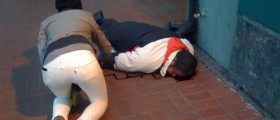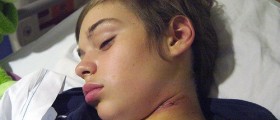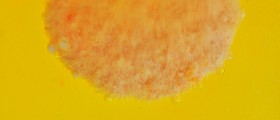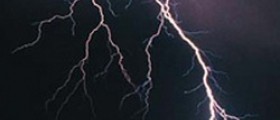
Nutrients from the food we eat are known to affect our mood but also more serious medical problems, including epilepsy. Doctors always advise their epileptic patients to eat healthy and balanced meals. Some researchers suggest that very low level of blood sugar (in medical terms hypoglycemia) may be associated with epileptic convulsions in diabetic patients taking too much insulin. However, there has not been any evidence supporting such clams so far.
Although many people believe that food can make significant difference in a life of a person suffering from epileptic seizures, it is very hard to find any specific information of this kind. Lack of Nutrients and Its Role in Epilepsy
Many people believe than lack of vitamins is responsible for seizures. This is not true, because there is just one vitamin (B6, pyridoxine) which may cause epileptic convulsions if the body lacks this important nutrient. In most cases, B6 deficiency is diagnosed in newborns and small children and causes seizures which are very difficult to control. Intravenous (IV) dose of vitamin B6 might be helpful for some patients suffering from B6 deficiency but there is no evidence that the same treatment will be effective in other epileptic seizures or older children.
Lack of important minerals such as sodium, magnesium or calcium may be associated with seizures, due to their effect on the neurons in the brain. Malnutrition is the most common cause of mineral deficiency, but this problem can also appear in situation when a person has some hormonal disorder or kidney disease. These conditions often lead to lack of calcium and magnesium. Magnesium deficiency is additionally linked to chronic alcoholism, while low sodium is often found in patients using diuretics, oxcarbazepine, carbamazepine and in people drinking too much water.Supplements and Epilepsy
Certain epilepsy patients have been using various herbal remedies, vitamins or amino acids in order to improve their symptoms or completely resolve epilepsy. Even though these people have reported positive outcomes after using these supplements, not one study has been able to confirm these effects.
Some treatments may be helpful but patients must be very careful not to try any of these until they are scientifically and objectively verified and proven to work. People may be faced with no positive results but they also may experience worsening of their current problems or some additional medical conditions provoked by supplements (adverse effects).
Mineral supplements are rarely advised for epilepsy patients. Your doctor is more likely to recommend change in diet and in certain cases he or she may recommend taking some mineral supplements.

















Your thoughts on this
Loading...